Abstract
Relationships between Middle Eastern patients and Western health care professionals are often troubled by mutual misunderstanding of culturally influenced values and communication styles. Although Middle Easterners vary ethnically, they do share a core of common values and behavior that include the importance of affiliation and family, time and space orientations, interactional style and attitudes toward health and illness. Problems in providing health care involve obtaining adequate information, “demanding behavior” by a patient's family, conflicting beliefs about planning ahead and differing patterns of communicating grave diagnoses or “bad news.” There are guidelines that will provide an understanding of the cultural characteristics of Middle Easterners and, therefore, will improve rather than impede their health care. A personal approach and continuity of care by the same health care professional help to bridge the gap between Middle Eastern cultures and Western medical culture. In addition, periodic use of cultural interpreters helps ameliorate the intensity of some cultural issues.
Full text
PDF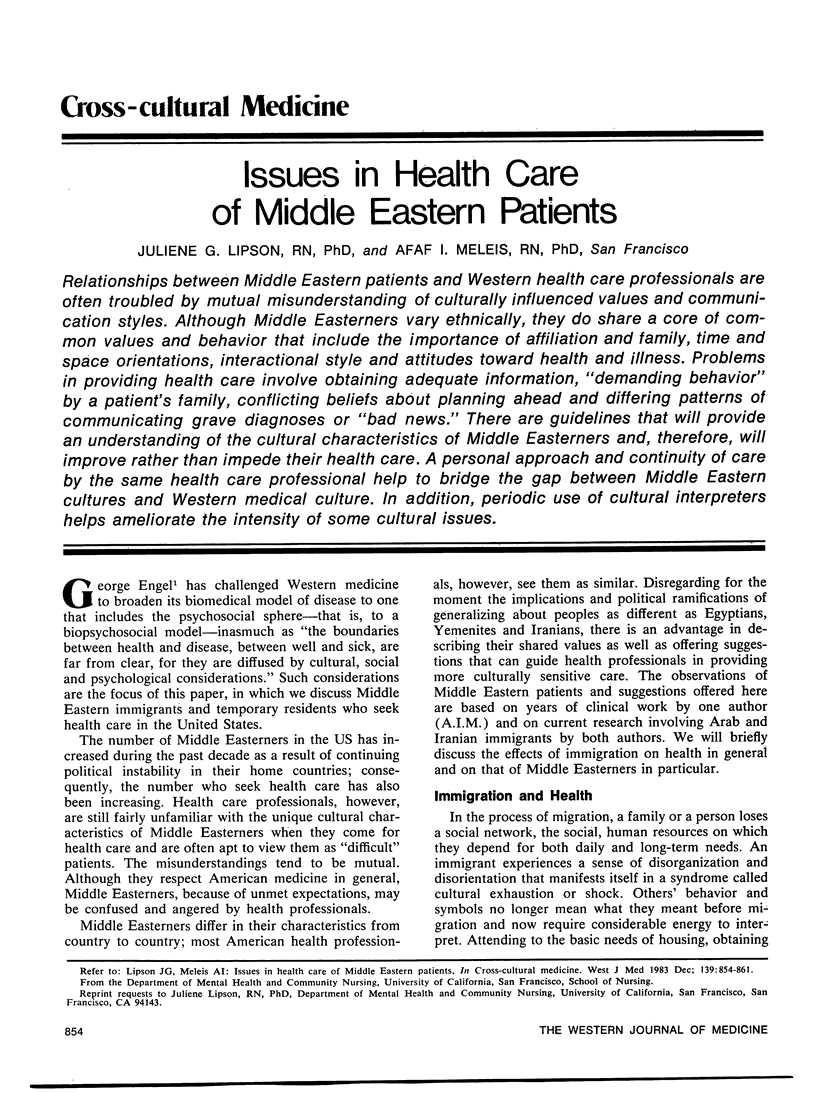
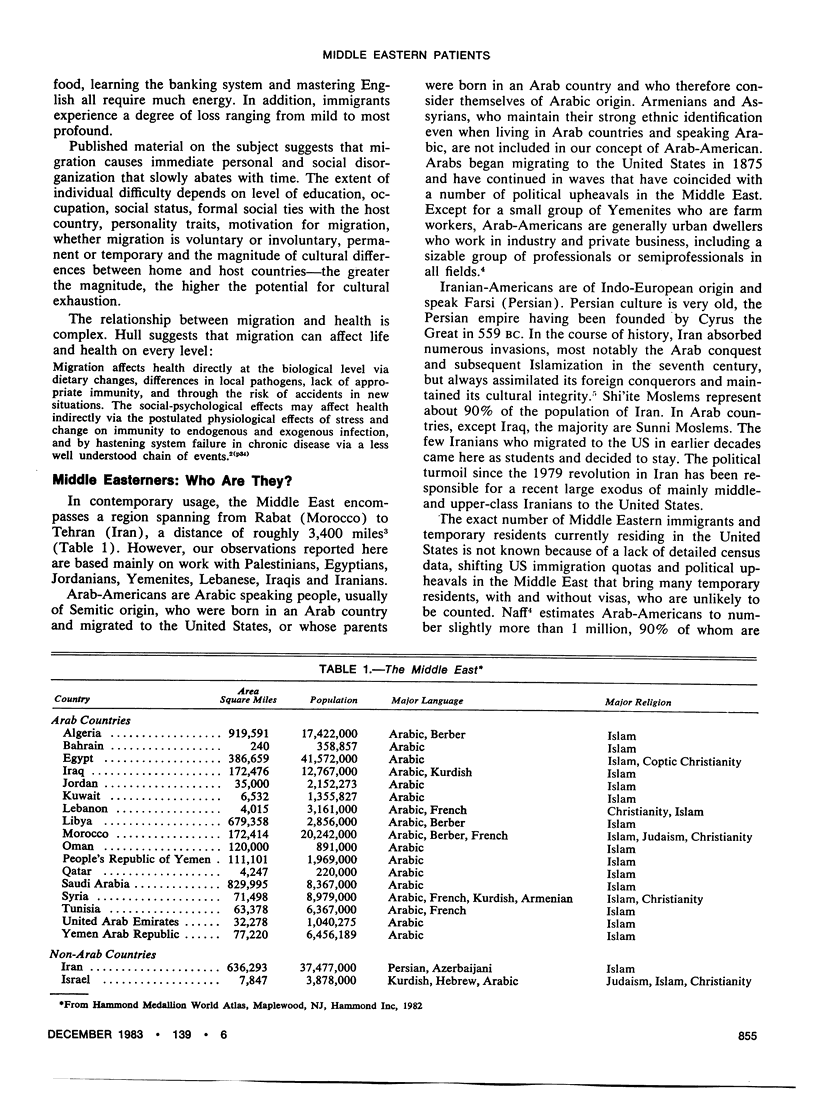
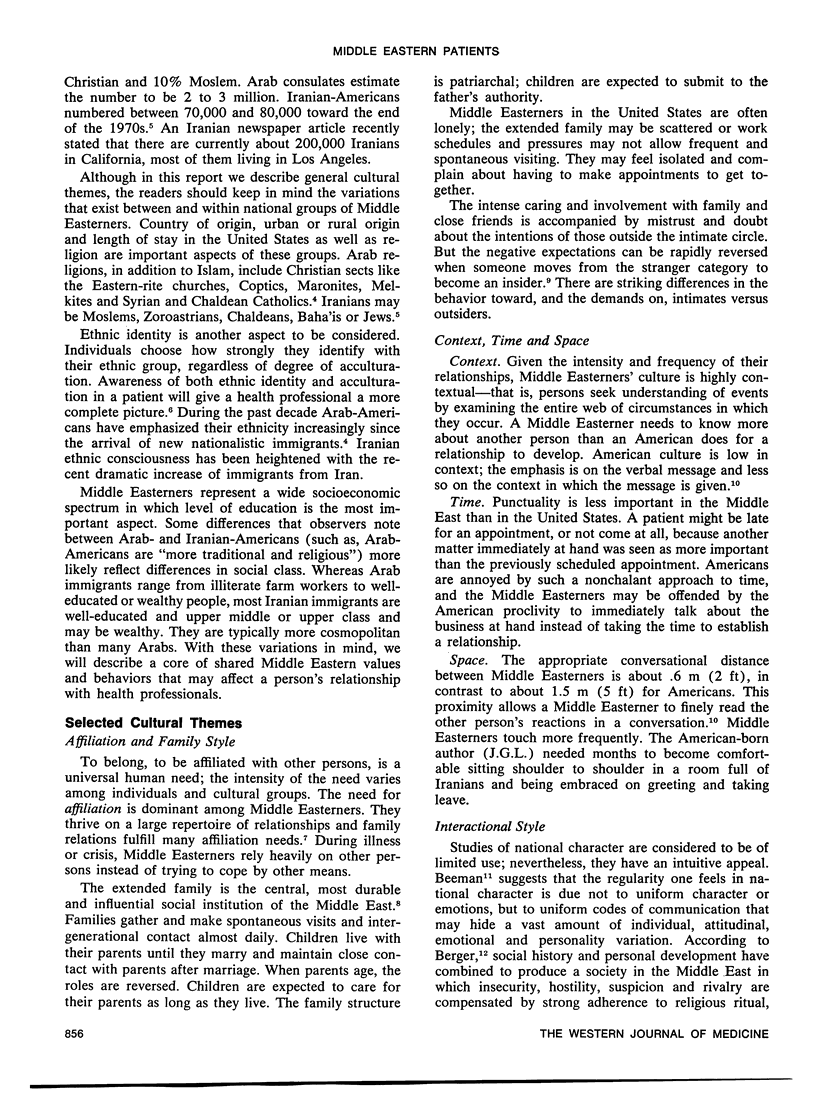
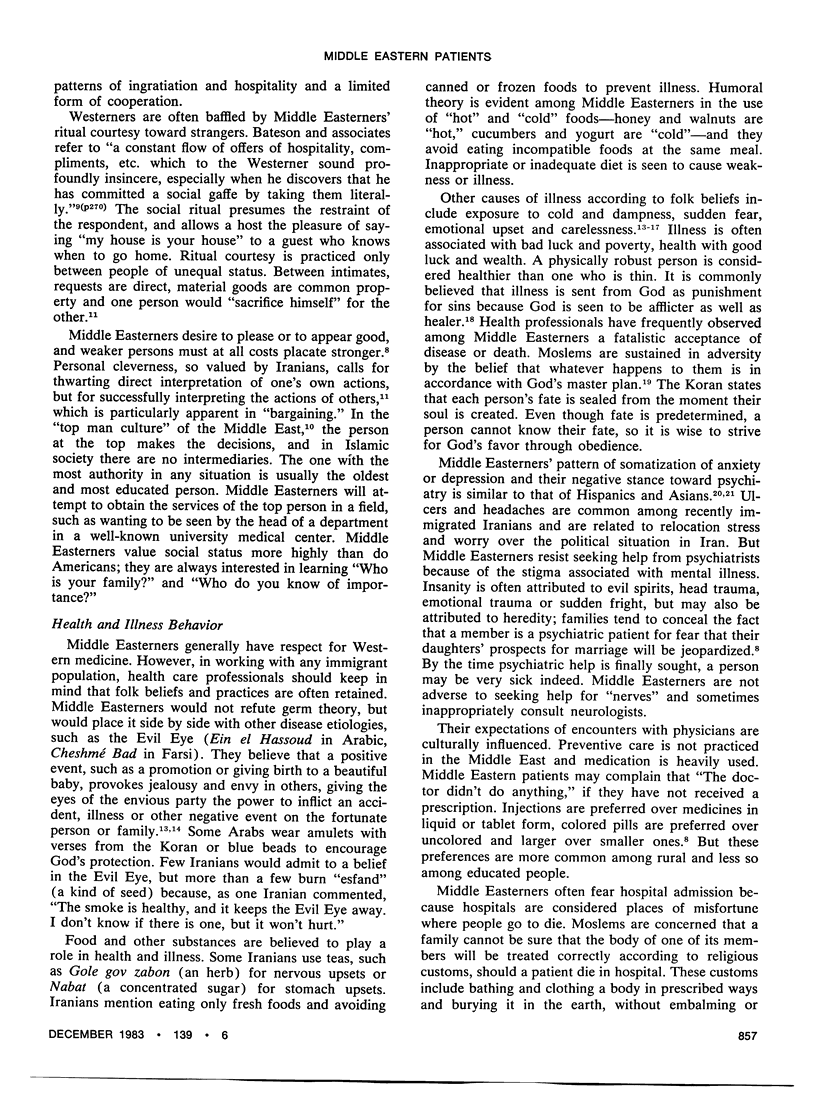
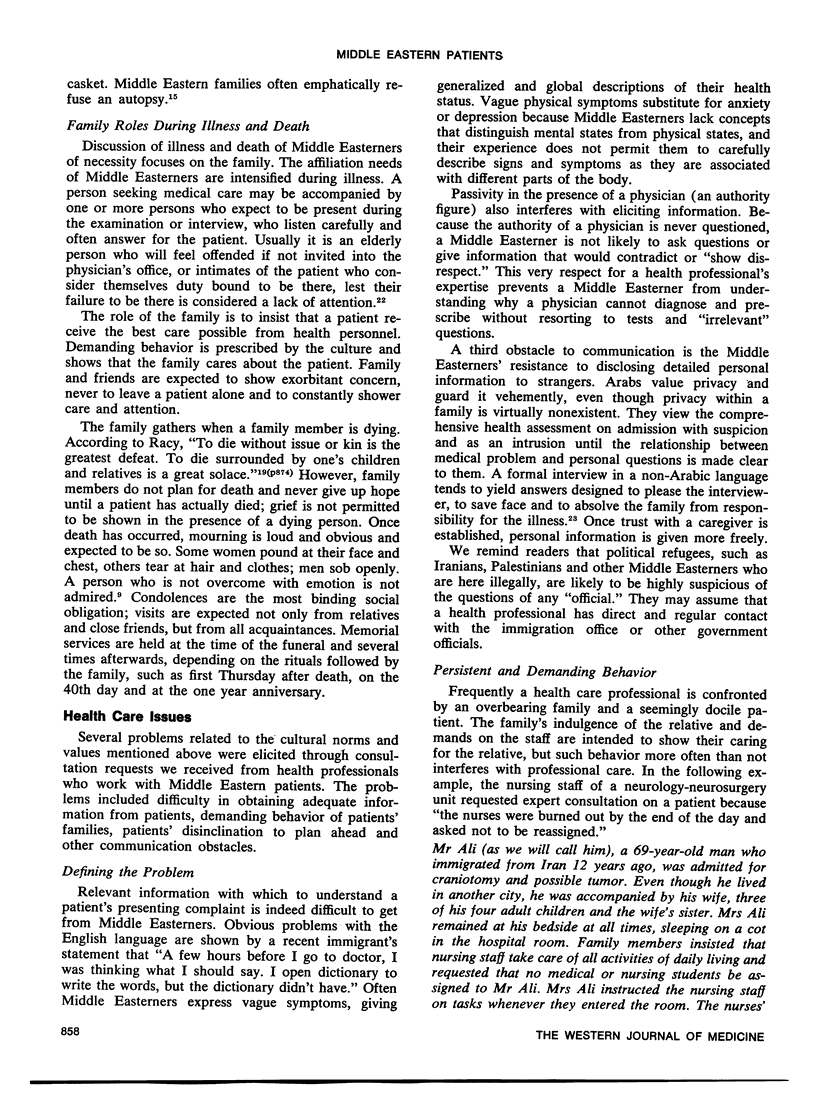
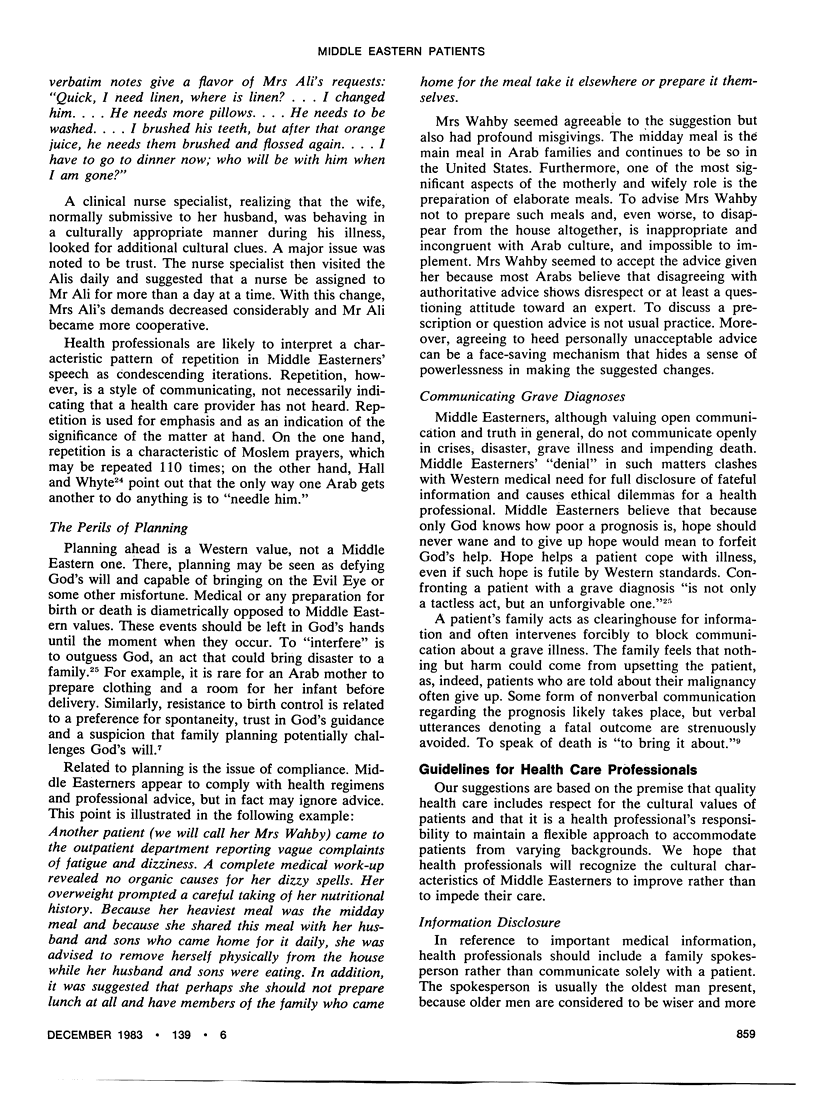
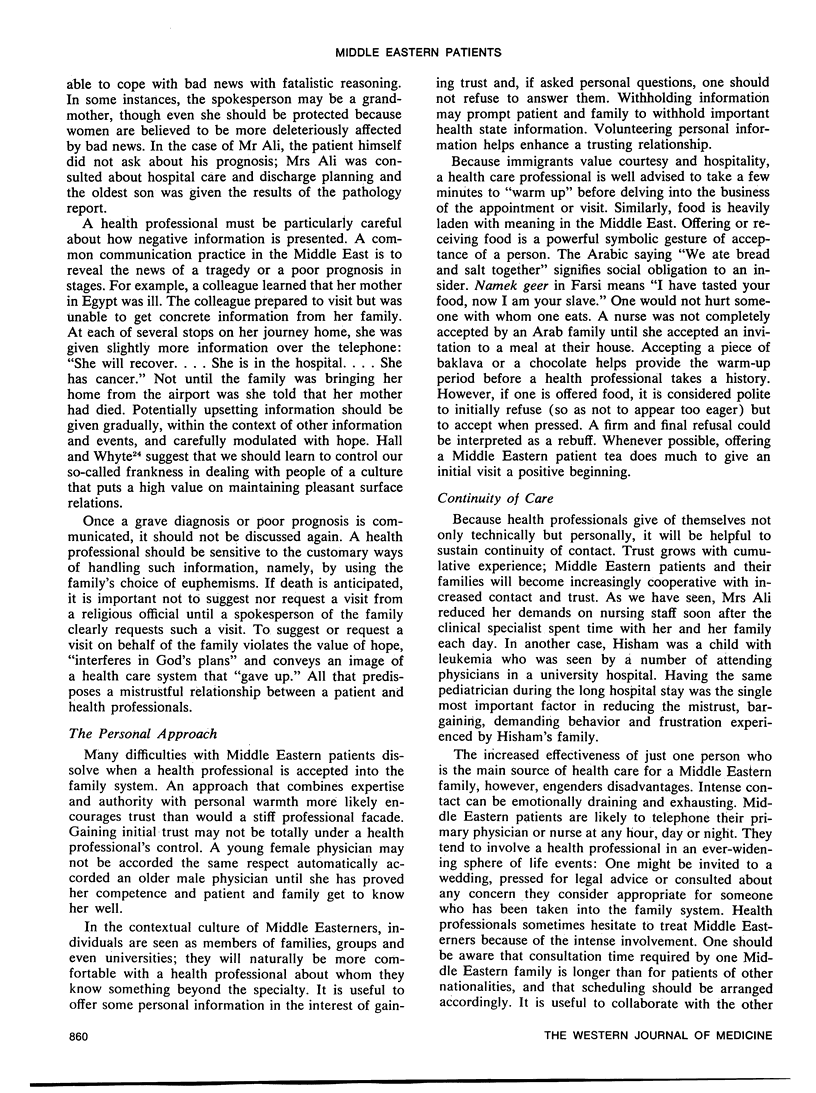
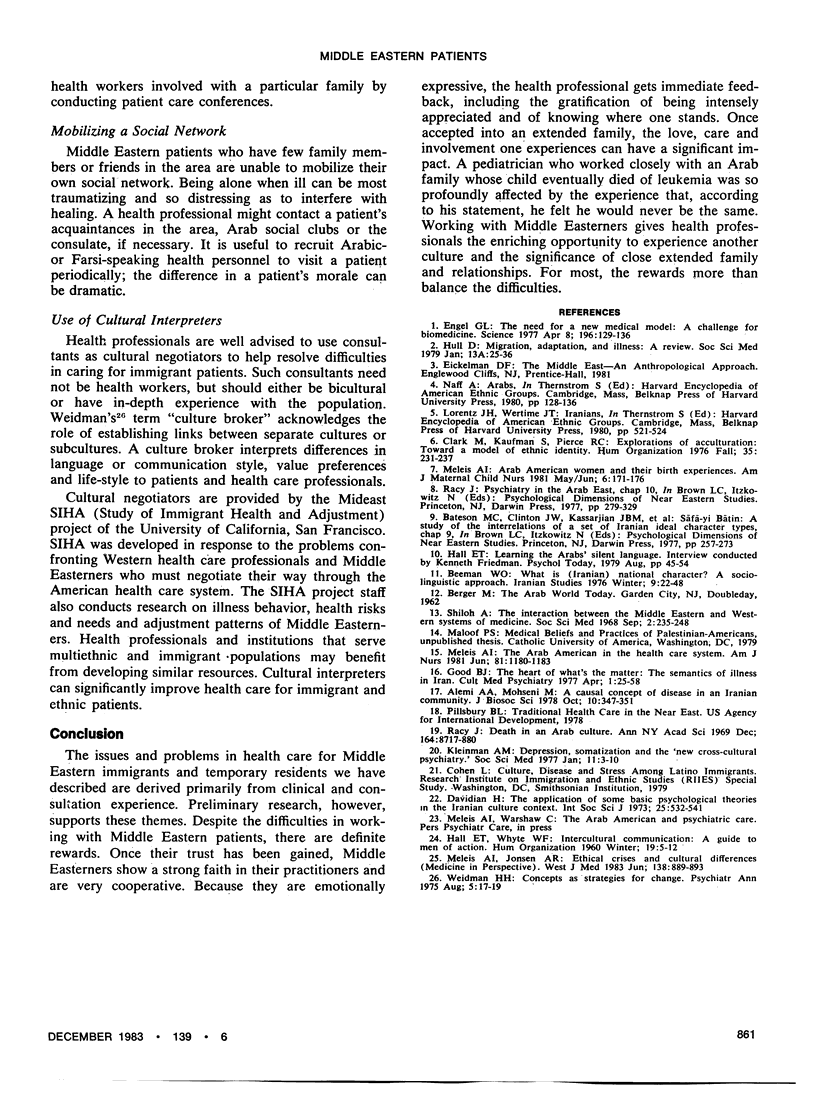
Selected References
These references are in PubMed. This may not be the complete list of references from this article.
- Alemi A. A., Mohseni M. A causal concept of disease in an Iranian community. J Biosoc Sci. 1978 Oct;10(4):347–351. doi: 10.1017/s0021932000011834. [DOI] [PubMed] [Google Scholar]
- Engel G. L. The need for a new medical model: a challenge for biomedicine. Science. 1977 Apr 8;196(4286):129–136. doi: 10.1126/science.847460. [DOI] [PubMed] [Google Scholar]
- Good B. J. The heart of what's the matter. The semantics of illness in Iran. Cult Med Psychiatry. 1977 Apr;1(1):25–58. doi: 10.1007/BF00114809. [DOI] [PubMed] [Google Scholar]
- Hull D. Migration, adaptation, and illness: a review. Soc Sci Med Med Psychol Med Sociol. 1979 Jan;13A(1):25–36. doi: 10.1016/0160-7979(79)90005-5. [DOI] [PubMed] [Google Scholar]
- Kleinman A. M. Depression, somatization and the "new cross-cultural psychiatry". Soc Sci Med. 1977 Jan;11(1):3–10. doi: 10.1016/0037-7856(77)90138-x. [DOI] [PubMed] [Google Scholar]
- Meleis A. I., Jonsen A. R. Ethical crises and cultural differences. West J Med. 1983 Jun;138(6):889–893. [PMC free article] [PubMed] [Google Scholar]
- Meleis A. I., Sorrell L. Bridging cultures. Arab American women and their birth experiences. MCN Am J Matern Child Nurs. 1981 May-Jun;6(3):171–176. doi: 10.1097/00005721-198105000-00009. [DOI] [PubMed] [Google Scholar]
- Meleis A. I. The Arab American in the health care system. Am J Nurs. 1981 Jun;81(6):1180–1183. [PubMed] [Google Scholar]
- Racy J. Death in an Arab culture. Ann N Y Acad Sci. 1969 Dec 19;164(3):871–880. doi: 10.1111/j.1749-6632.1969.tb14101.x. [DOI] [PubMed] [Google Scholar]
- Shiloh A. The interaction between the Middle Eastern and Western systems of medicine. Soc Sci Med. 1968 Sep;2(3):235–248. doi: 10.1016/0037-7856(68)90001-2. [DOI] [PubMed] [Google Scholar]


